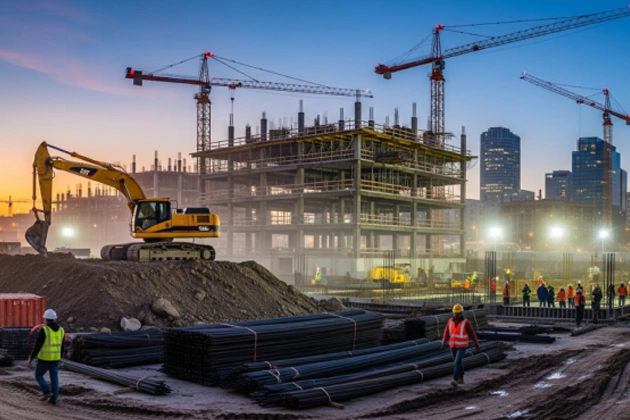Modern civilization rests upon a foundation of steel, concrete, and power. The ambitious projects defining our skylines and powering our communities represent a complex dance between structural ambition and the immense energy required to sustain it. Understanding the critical intersection of these two fields is not merely beneficial; it is fundamental to any project’s success. This intricate relationship demands foresight, demanding that project leaders recognize the precise moments for seeking specialized guidance.
The Role of an Energy Infrastructure Consultancy
Why consider external advice? The landscape of power systems, grid integration, and sustainable sourcing is a labyrinth of regulations, technological shifts, and logistical puzzles. An experienced energy infrastructure consultancy provides a crucial bridge between a construction firm’s vision and the practical realities of power delivery. These experts offer more than just technical specifications. They bring a depth of knowledge concerning regional compliance mandates, potential incentives for renewable adoption, and innovative solutions for efficiency. Their involvement can illuminate hidden challenges before they become costly setbacks, transforming potential obstacles into manageable components of the overall plan. This foresight ensures your building doesn’t just stand but thrives within its environmental and economic context.
Project Conception and Feasibility
The very beginning of a project represents the most impactful time to engage specialists. During these initial brainstorming phases, consultants can assess the site’s energy characteristics. They evaluate grid access capacity, explore alternative power generation possibilities like solar or geothermal, and provide preliminary load calculations. This early analysis shapes fundamental design choices, influencing everything from architectural layouts to material selection. Bringing in experts at this stage ensures energy considerations are woven into the project’s DNA rather than patched on later as an expensive afterthought.
Navigating Regulatory Approvals
Obtaining the necessary permissions for construction and power hookups can be a formidable challenge. Municipal, state, and federal agencies each have their own unique sets of rules and requirements. Consultants who are well-versed in this bureaucratic terrain can act as invaluable guides. They prepare the required documentation, communicate directly with authorities, and shepherd your application through the approval maze. Their established relationships and understanding of procedural nuances can significantly shorten timelines, preventing your project from stalling at the drawing board.
Technology and System Integration
Today’s construction projects often incorporate sophisticated technology. Smart building systems, electric vehicle charging stations, and battery storage units require seamless integration. Specialist advisors help navigate this complex ecosystem of hardware and software. They ensure different components communicate effectively and function as a cohesive whole. Their input is vital for selecting interoperable equipment that delivers both performance and future adaptability.
Budgeting and Financial Planning
Accurately forecasting costs related to power systems is notoriously difficult. Unexpected expenses in this area can devastate a carefully planned budget. Professional advisors provide realistic financial projections for all energy-related aspects. They identify potential government grants or tax benefits for implementing efficient solutions. This detailed financial mapping protects your investment from unforeseen overruns while maximizing potential returns through strategic, sustainable choices.
When Construction Uncovers Unexpected Issues
Even with meticulous planning, surprises can emerge once ground is broken. Site work might reveal unforeseen geological conditions affecting utility routing, or existing grid connections may prove inadequate. Having a consultant already involved creates a responsive support system. They can quickly diagnose these unforeseen problems and develop practical, immediate solutions, keeping the work on track without compromising safety or design integrity.
The Path Toward Sustainable Development
Sustainability is no longer a niche interest but a core component of modern construction. Advisors provide critical insight into achieving environmental targets, whether pursuing specific certifications or simply reducing the project’s long-term carbon footprint. They analyze life-cycle costs, recommend materials with lower embodied energy, and design systems that minimize operational waste. This guidance aligns your project with both ethical standards and evolving market expectations.
Final Considerations for Your Project
Determining the ideal moment to speak with a consultant hinges on your project’s complexity and your team’s internal expertise. For any endeavor beyond the most basic scope, that conversation should happen early. Their strategic involvement from conception through completion transforms potential energy challenges into a demonstrated project strength, ensuring the final structure is both physically sound and intelligently powered for decades to come.










